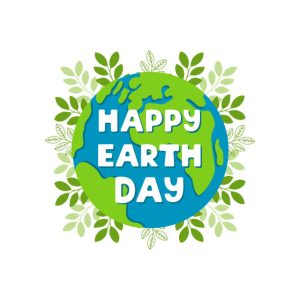
It is often said that April showers bring May flowers, probably alluding to the fact that Earth Day occurs during this month. Environmental communication is a topic of great importance that serves to raise awareness, change behavior, and advocate for policies. Meteorologists are no exception to this, and Rob Eicher gives us an insight into the behind the scenes of this profession. As a doctoral student at NSCM, Eicher ties in his expertise in the field to his research.
How did you become interested in becoming a meteorologist?
“For many meteorologists, there was some single, high impact event (often a hurricane or a tornado) early in their lives that piqued their interest in weather. For me, there wasn’t a single event, but I remember being scared to tears by thunderstorms as a little kid, which made me want to know more about them. I remember wondering how something so loud and scarry could just seemingly come out of nowhere. Learning more about something often makes its seem less frightening.”
Why is Earth Day important?
“From an atmospheric science perspective, the very first Earth Day in 1970 is credited for mobilizing the political will that lead to the creation of the Environmental Protection Agency (EPA), the amendments to the Clear Air Act that gave the federal government the authority to regulate air pollution, the reorganization of the Weather Bureau into the National Weather Service, and the creation of the National Oceanic and Atmospheric Administration. That all happened in 1970! You can read those words from the President directly, you don’t have to take my word for it. So, it would be hard for anyone to find a single event that has had a bigger impact on the laws governing the atmosphere and those who study it. On a more general level, I think of Earth Day as important for the same reason that Mother’s Day is important – there should be at least one day dedicated to recognizing how much we owe our lives to someone or something.”
What are your favorite things about weather forecasts? What is most challenging?
“My favorite thing about forecasting the weather is the challenge of it. You essentially get to predict the future and then find out exactly whether you were right or wrong. In my career, I found the most challenging thing to predict was snow. The difference between the atmospheric ingredients required to produce a few inches of snow and a few feet of snow is incredibly small, yet the difference in impacts on the ground is massive, and something your audience will never let you forget if you get wrong. I know that from experience. Fortunately, we don’t have to worry about that here in Florida. Unfortunately, for a variety of reasons, lack of detailed observations over the oceans for example, hurricanes are equally challenging to predict.”
What steps are taken to ensure safety during severe weather situations?
“That question is difficult to answer because it depends on what type of severe weather you are talking about and who you are talking about (meteorologists, government agencies, schools, business, etc?). I can say that my advice for any potential severe weather situation is to have multiple ways of getting warnings and information. The Wireless Emergency Alerts (WEA) on smartphones are fantastic overall. However, the recent AT&T outage across the country proved that you can’t always rely on your smartphone. So, it never hurts to also have some old-school method for getting warnings and information like a radio.”
How has climate change affected weather patterns globally?
“Where do I start?!? Everything from turbulence in airplanes to how much rain does or does not fall has been impacted. If I were to sum up how climate change has affected the weather in one sentence I would say that it has made everything more extreme. Ironically, that also includes winter weather patterns, meaning snowfall is also more extreme. Some people refer to it as “global weirdness” and I think that’s a fairly accurate description. Weather patterns that used to seem very unusual, weird, or extreme are now becoming more common. And yes, that does make weather forecasting even more challenging, especially when it comes to predicting the intensity of hurricanes.”
How might technological advancements change weather forecasting in the future?
“The “hot” topic in the atmospheric science community right now is AI, as it is elsewhere. AI is already revolutionizing how we predict the weather. At the moment, traditional forecasting methods are still used to train the AI systems, so I don’t think those methods are going away anytime soon. However, many meteorologists think AI will be the future of weather forecasting and will lead to more accurate forecasts.”

Rob Eicher, Assistant Professor of Meteorology at Embry-Riddle Aeronautical University and Doctoral Student at NSCM
By Majdulina Hamed.
Published to Nicholson News on April 4th, 2024.
If you have any news, accomplishments or highlights about your work or life, please be sure to share them with us, by emailing us at NicholsonNews@ucf.edu.